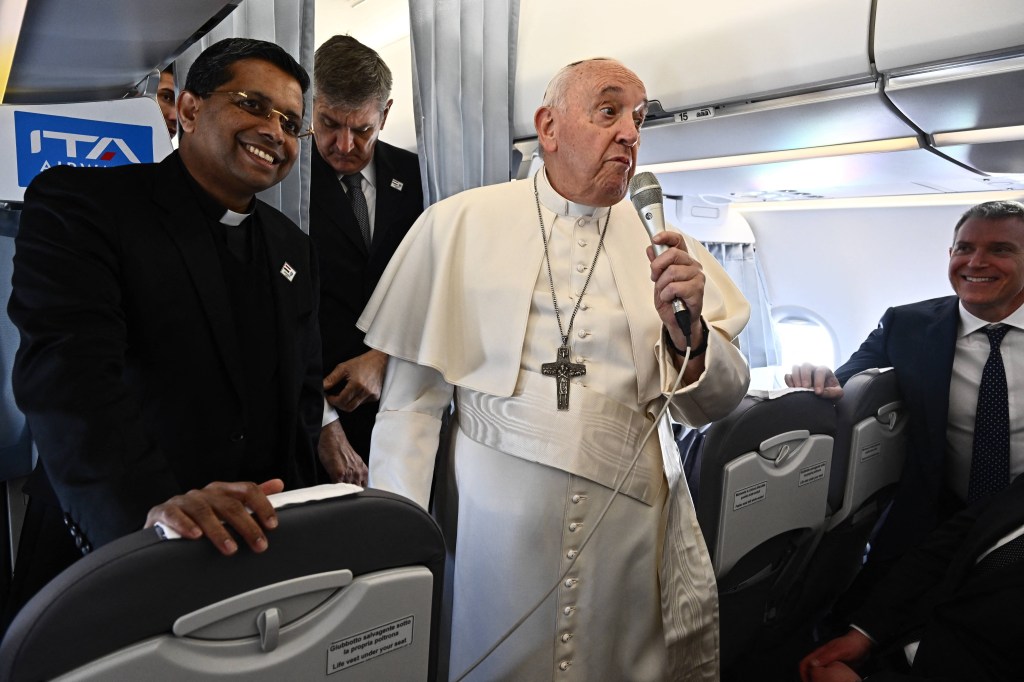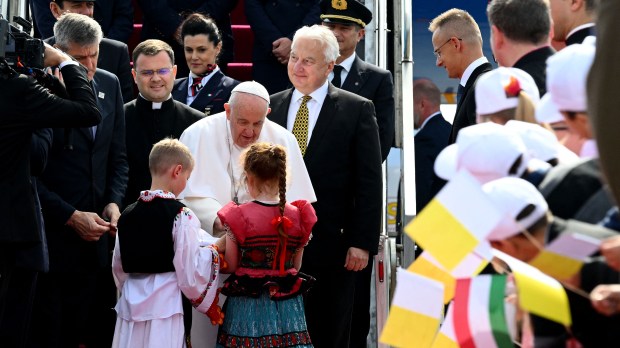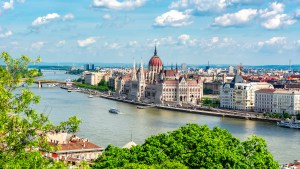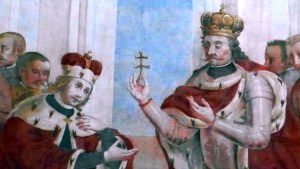“A journey to the center of Europe, over which the icy winds of war continue to blow.” Pope Francis himself described the event in these terms at the end of the Regina Caeli on April 23.
While Hungary has, according to government numbers, taken in nearly a million Ukrainian refugees since the conflict began, the Pope emphasized the “urgent humanitarian questions” posed by the war, referring to the “displacement of so many people.” The fighting that has been going on for 14 months in the neighboring country will therefore be at the heart of the concerns of the 86-year-old Pontiff.
Speaking about this trip, Pope Francis also recalled that he already visited Hungary very briefly in September 2021 on the occasion of the International Eucharistic Congress, and said he was happy to find “a Church and a people so dear to [him].” That stop was not a full trip to the country, but only a stopover of a few hours on the way to Slovakia, in the context of the Eucharistic Congress.

On the plane that was taking him to Budapest, Pope Francis was able to greet, standing up, each of the 73 journalists on board. On his previous two trips, he remained seated to shake hands with reporters due to his knee pain.
Upon his arrival on the tarmac of Ferenc Liszt Airport in Budapest, the Pope walked with a cane the few meters to his hosts, including Cardinal Péter Erdő, Archbishop of Budapest, and Hungarian Deputy Prime Minister Zsolt Semjén. A few Hungarian children were waving flags.
The Pope as “pilgrim, friend, and brother of all
For this 41st trip outside of Italy, Francis presents himself as a “pilgrim, friend, and brother of all.” During his three days in Budapest, the head of the Catholic Church is expected to meet with political leaders, including Prime Minister Viktor Orbán, with whom relations have been variable. Orbán’s restrictive policy on the reception of migrants has made him appear as an opponent of the Argentine Pontiff. In recent months, however, their positions on the Russian-Ukrainian war – calling for dialogue and a cessation of hostilities – have brought the two men closer together.
The theme of refugees will be one of the highlights of this trip. The Pope is scheduled to meet on Saturday with refugees from Ukraine, Pakistan, Afghanistan, Iraq, Iran, and Africa, in a country that in 2015 closed its borders with Serbia, from where migrants on the Balkan route came.
Other themes expected to be discussed, according to the director of the Holy See Press Office, Matteo Bruni, are ecology, an area in which Hungary is very involved; the role of the European Union and its commitment to global peace; and Christian unity.
Although it is not yet confirmed whether representatives of the Moscow Patriarchate will be present at some of the events, the organizers point out that this was the case during the Pope’s first visit in 2021. A meeting with Metropolitan Hilarion, former “Minister of Foreign Affairs” of the Moscow Patriarchate, who is now based in Budapest, is being considered by some observers. Nonetheless, it is not on the official program.
Support for persecuted Christians
The Pope will also have a meeting with bishops, priests, and religious, and will celebrate a Mass in Kossuth Lajos Square in Budapest with the Catholic community. This community experienced a renaissance after the persecution under the communist regime, but today it’s suffering the effects of the secularization of the Old Continent. The Hungarian people have distanced themselves from religious practice and live “a certain practical atheism, […] life as if there were no God, the powerlessness of material well-being and the absence of a spiritual sense,” explains Hungarian Jesuit Zoltán Koronkai, director of an intellectual center in Budapest, evoking the realities that the Successor of Peter will have to face.
Lastly, the promotion of the family and of having more children, as well as support for persecuted Christians in the Middle East, are points of proximity between the Hungarian and papal perspectives. As the Pope regularly denounces “ideological colonization,” the Hungarian government opposes gender ideology. The President of the Republic, Katalin Novák, elected in 2022, embodies a defense of the traditional family of “father, mother, and children,” in line with the Doctrine of the Catholic Church.



